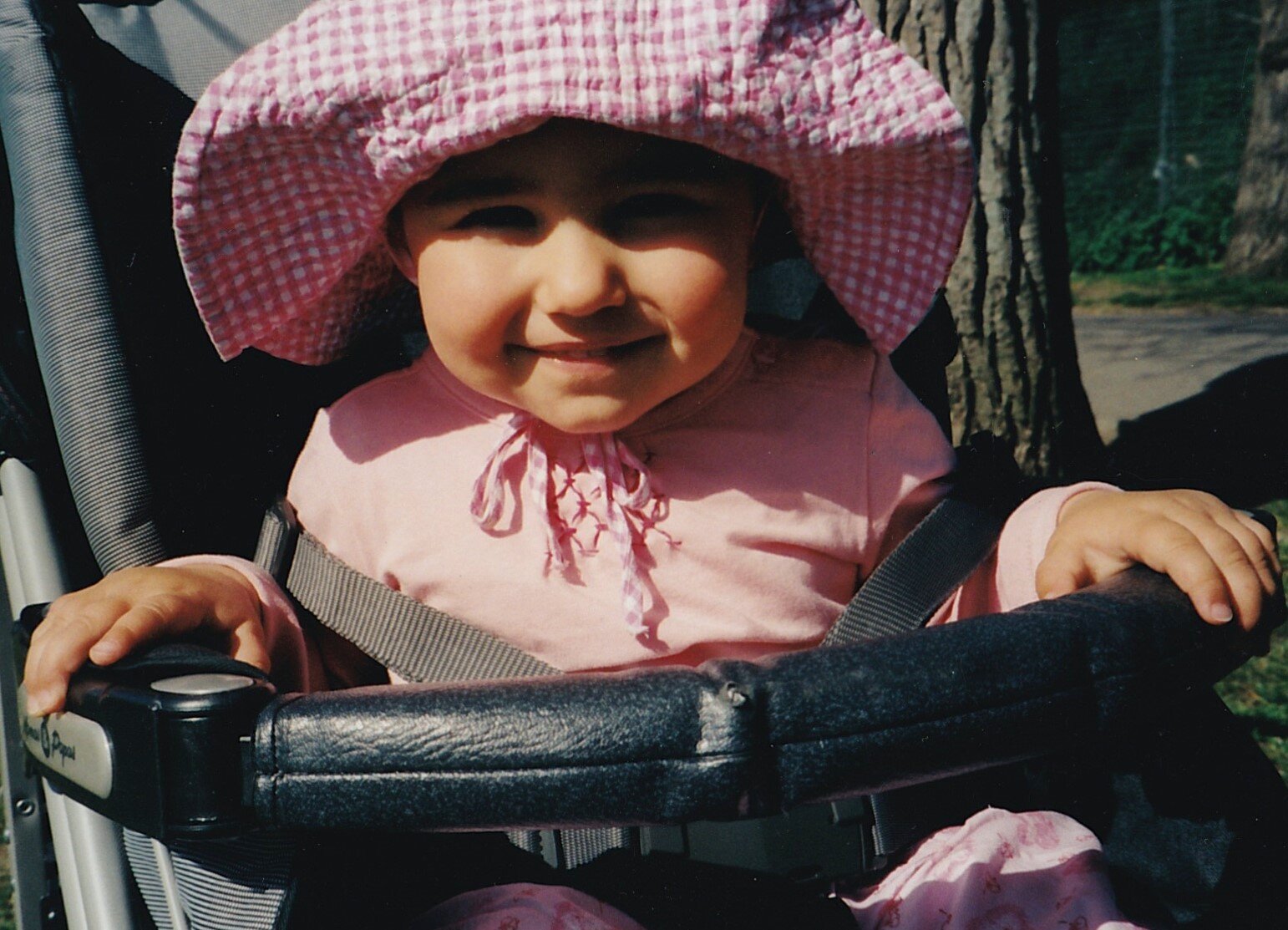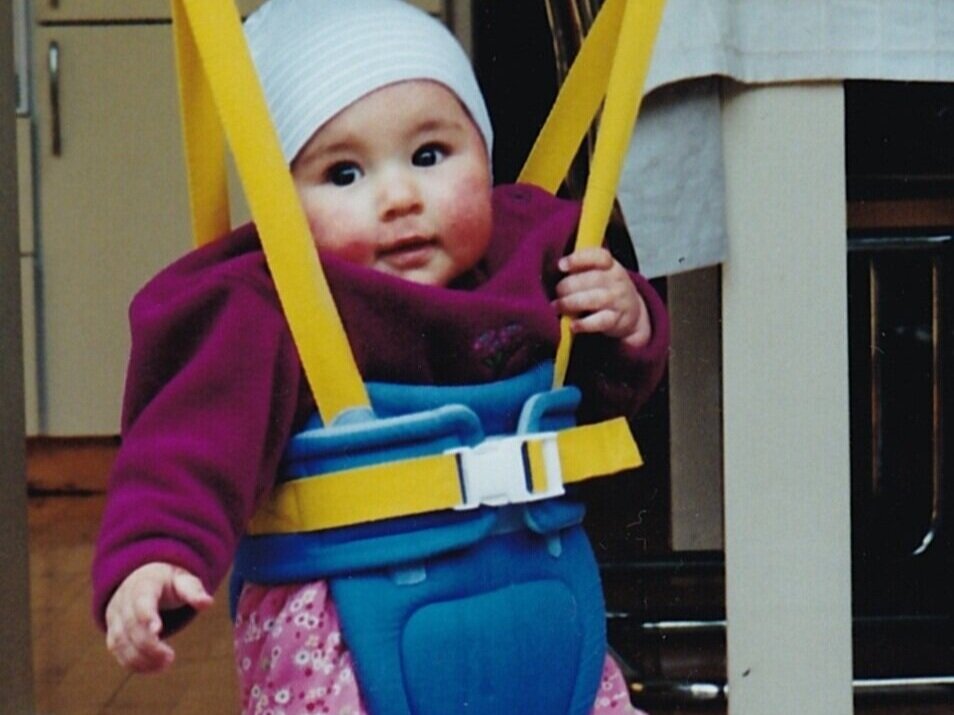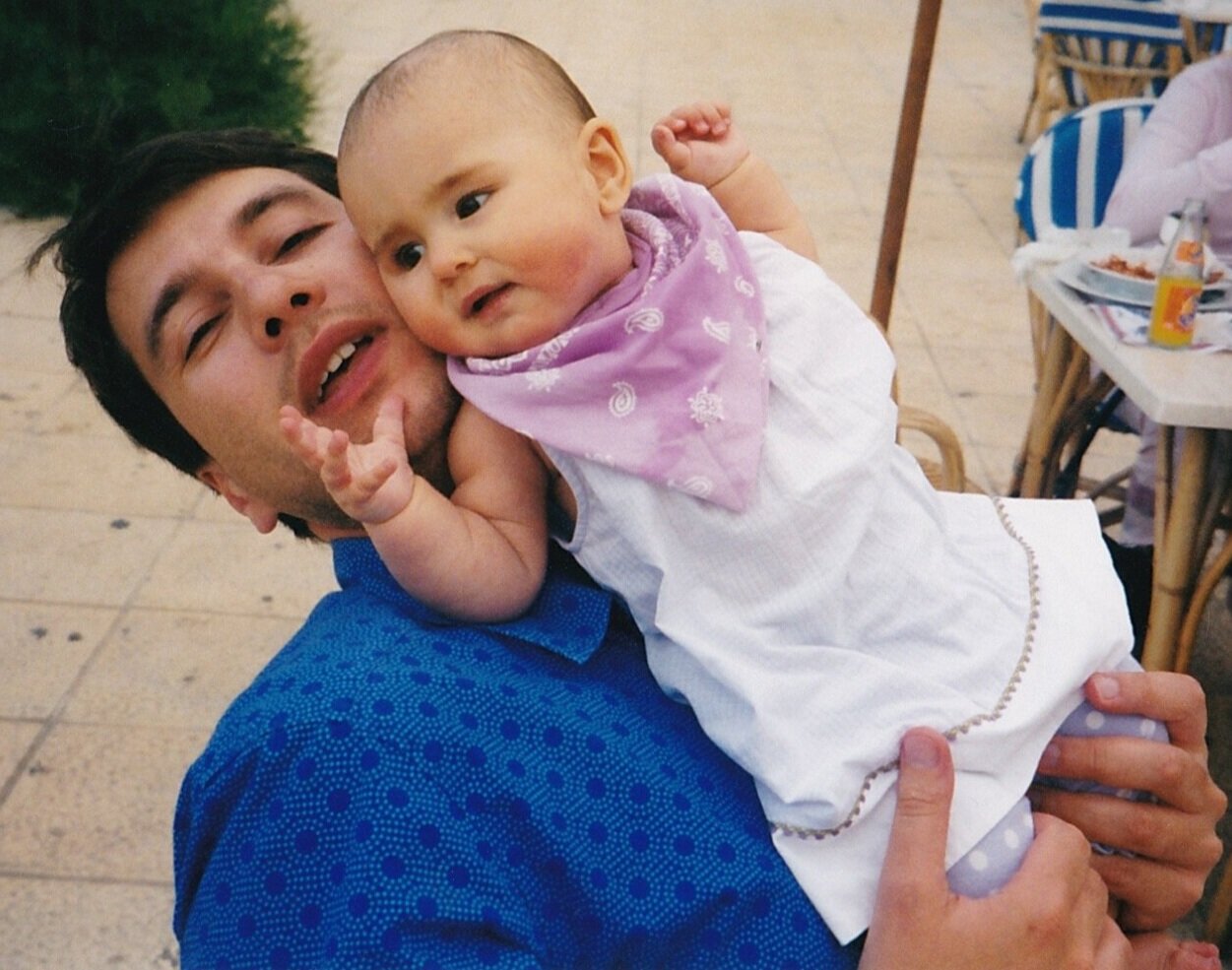Life Before & After Allergies
Close your eyes for a moment and think back to a time in your life, a moment when you realised in a millisecond, that nothing will ever be the same again. Time has divided into two parts, the ‘Before’ and the ‘After’.
Natasha was born in December 2000, she was our firstborn, perfect little fingers and toes and a textbook baby, easy in every way.
Then our ‘After’ happened. It crashed straight into our lives like a comet thrown out of orbit and changed our lives for forever.
Natasha was just 3 months old when following a visit to our family GP, she was diagnosed with eczema. We were reassured that it would most likely disappear as quickly as it had appeared and armed with a prescription, we were hopeful that this would be the case. We applied a barrier cream as directed onto her skin and then a steroid cream on top. Her skin reacted to the lanolin in the barrier cream and burned it – literally. She screamed and would not be comforted and for a week, her skin pealed away from her face. Think of the worst sunburn you have ever seen and then add deep fissures and cracks of raw flesh that weep and bleed, that was our baby girl’s face.
Three months later, we agreed to go on holiday with friends to Minorca for a week. Halfway through the holiday, I gave Natasha a tiny piece of banana for the first time. Within minutes her lips and face swelled out of all proportion and as she screamed in terror and pain, we rushed her to hospital. The doctors weren’t able to find a vein to inject her with life-saving adrenalin because she was so tiny and her veins were miniscule. We had to wait to see if she would live. It was terrifying.
We were really concerned now. As soon as we returned to the UK, we made an appointment to see our GP who although sympathetic to Natasha’s allergic experience, was not overly concerned. She was a good weight, alert and meeting all her development milestones so we were told not to worry. My gut instinct told me the exact opposite.
I was concerned about weaning Natasha onto milk formula in case she had a dairy allergy. I still had regular flashbacks from the banana episode and didn’t feel reassured by our GP’s confidence that it was highly unlikely she would suffer another allergic reaction. But we were told once again that the banana reaction was undoubtedly an isolated one, to stop worrying and to go ahead and give her the milk formula.
Natasha finished a quarter of the bottle and refused to drink anymore. Within 5 minutes she had her second anaphylactic reaction which was as horrific as the first one. We rushed her to A&E and again no vein could be found to give her life saving medicine and once again she somehow survived.
Natasha’s skin reacted to lanolin prescribed to help with her eczema.
Natasha at 3 months old
During these months, no help was ever offered to us from the medical world and no meaningful information could be found elsewhere. It’s crazy how alone and vulnerable we were as parents to an allergic baby. I often think of our lives with Natasha when she was a baby as a journey pitted with dangers at every turn. I was scared a lot of the time and always on constant high alert. I relied almost entirely on my gut instinct and I questioned everything. I had such a fear in my heart and every morning I accepted that the day contained a whole host of dangers that hadn’t yet presented themselves to us. I needed to find them before they had a chance to wreak their damage.
I began to educate myself with allergy information. I read everything I could find about allergic disease that I could get my hands on. I quickly learned that eczema was often a prelude to an allergic immune and a high proportion of children with eczema went on to develop allergies. Why had our GP not alerted us to this? Why did our GP make the judgement call to allow us to give Natasha dairy baby formula when she had already suffered an anaphylactic reaction?
One of the answers to this question is that in 2001, so little was understood about allergies and advice given from those we most trusted was unfortunately rarely informed. Thankfully, the world has moved on since then BUT, there is still a very long way to go. The many letters and emails that we received from people with allergies and frightened parents of allergic children since Natasha’s inquest are testament to this. The world we live in, still hasn’t caught up with understanding that ‘allergy’ must not be confused with a lot of fuss about a sneeze or an itchy eye due to pollen as it often is. Allergy is a disease of varying degrees, it is a compromised immune system that in its most dangerous reaction, swells and closes airways and can kill very quickly.
Natasha at 6 months, 2 days before her first anaphylactic reaction.
Life before and after allergies are a world apart. After Natasha’s allergic reactions in those early days and years of learning to keep her safe, my anxiety levels were huge, that in retrospect had a damaging effect on my emotions. I had to learn quickly, not just to live with this anxiety but to separate it from who I was. I had to be strong, my responsibility was to protect my child and the doubts and fears that regularly assailed me from all directions must only make me stronger.
Looking back, the missing link in our lives whilst living with allergy, was the lack of hope we felt.
Give her this ‘medicine’ if she has a reaction and hope for the best. REALLY? There was and still is so little understanding of this disease. The medical world that we should be able to trust the most still has huge gaps in their understanding of it.
Having no hope is unacceptable to living a fulfilled life. Natasha died. I would die a million deaths to change the past but I can’t and so her legacy will continue through The Natasha Allergy Research Foundation to help others, to give hope, real hope. It is what she would want us to do, of that we have no doubt - to have the biggest ask of all, to fund meaningful research projects that have impact, to find a cure. This is our life now ‘after allergies’ and our mission.



